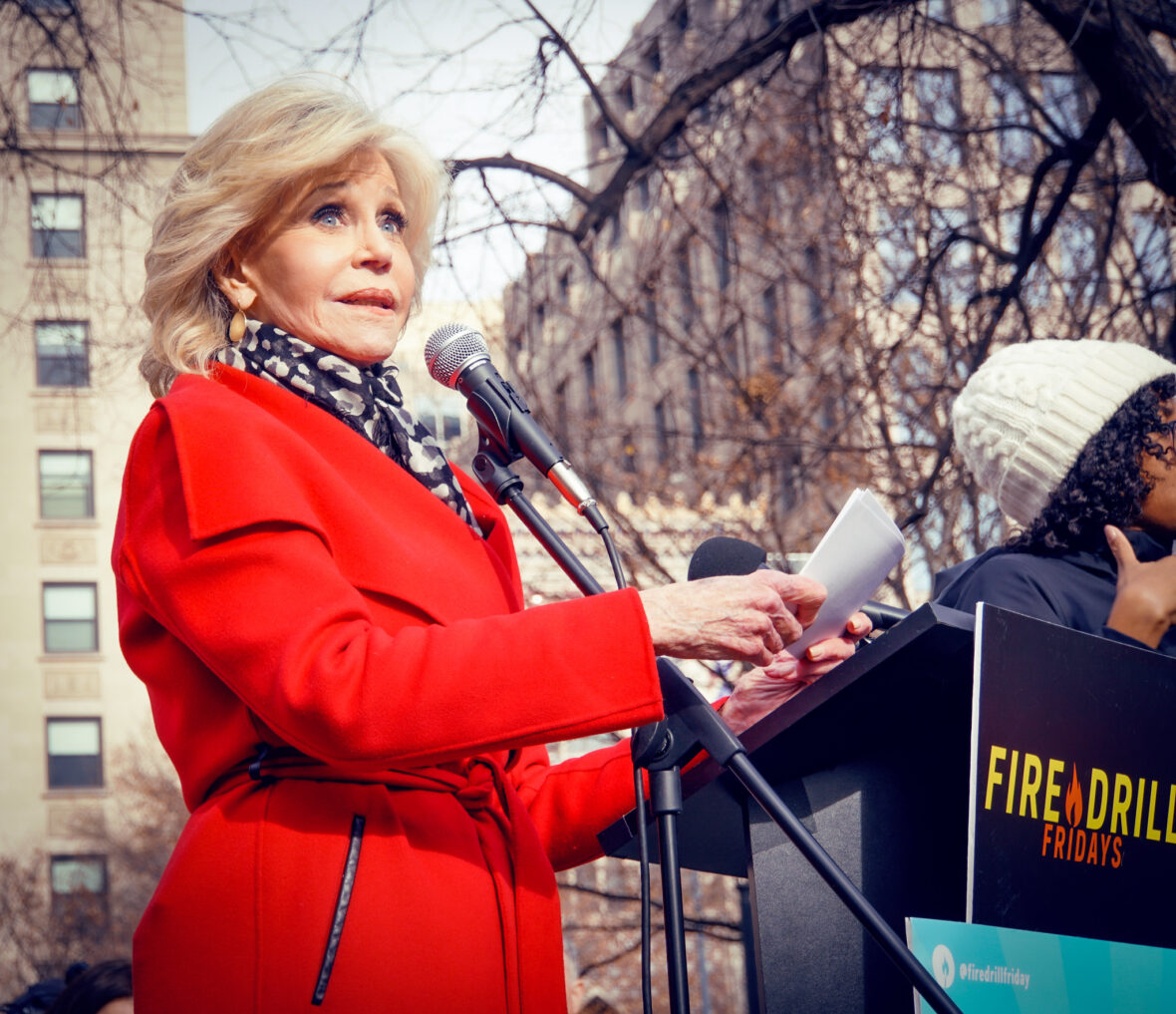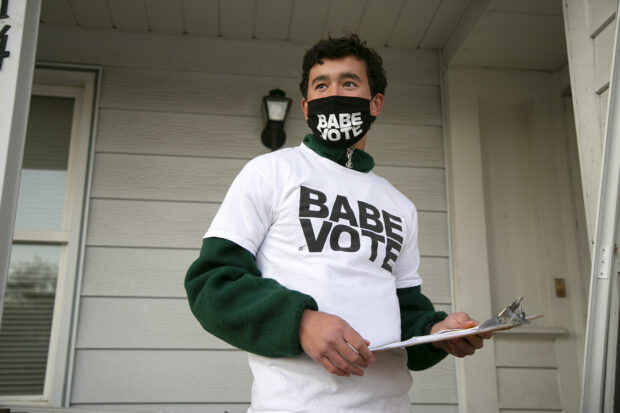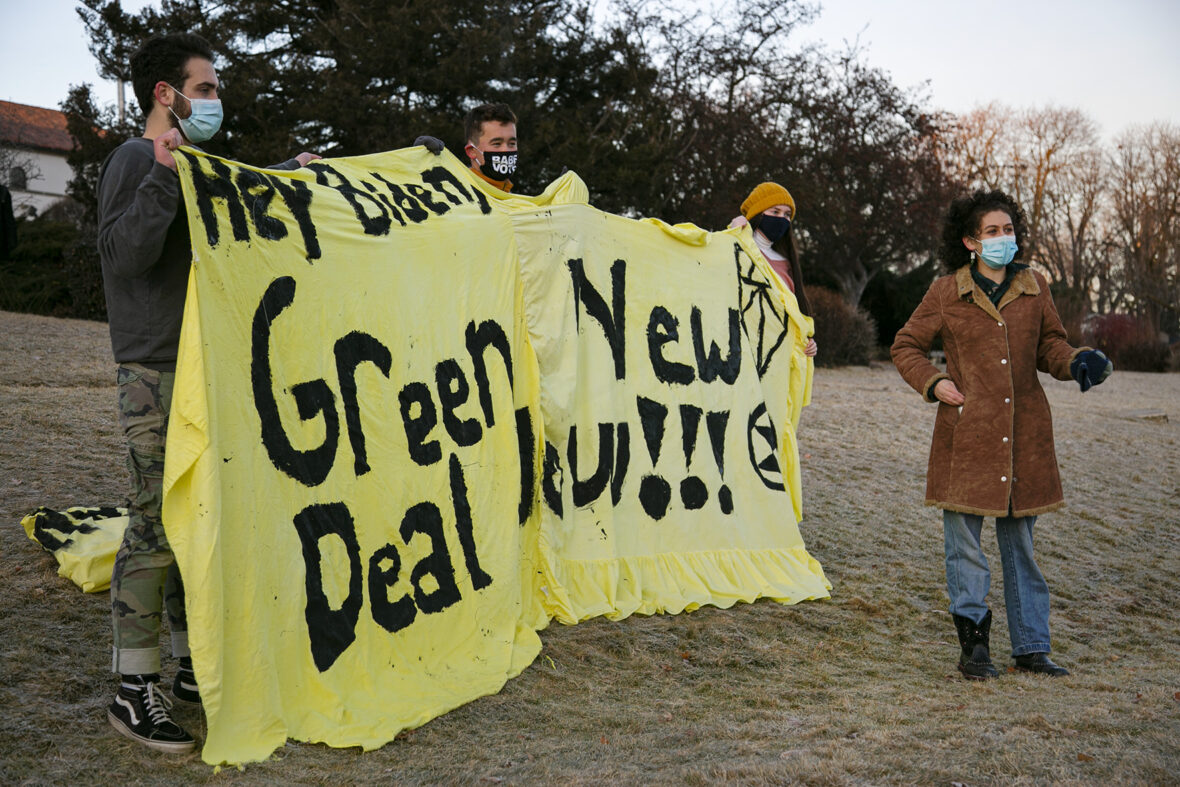
Boise High student Shiva Rajbhandari was in the middle of a meeting with his boss at the Idaho Conservation League when his phone started to ring. A call was coming in from Georgia.
It was probably spam, Rajbhandari thought. He picked it up anyway.
On the line was actress Jane Fonda, replying to a letter Rajbhandari had sent asking if she’d help sponsor the cost of a college course for one of his Boise High classmates.
A group of Boise High students are trying to take a college-level environmental studies course next year, but learned that the three credit course would cost close to $1200 each including fees, Rajbhandari said. Idaho’s Advanced Opportunities fund, which helps high schoolers pay for things like career-technical education and dual-credit courses would help cover the cost for about $75 a credit, but students would still be on the hook for nearly $1,000 a piece.
“None of us could pay that. We were like, well, I guess we can’t take the class,” Rajbhandari said.
But Rajbhandari didn’t quit that easily. He reached out for fundraising help, and his first letter was to Fonda, who organizes climate change rallies in Washington, D.C. and, in her eighties, has been arrested multiple times for the cause.

Rajbhandari, co-founder of a local youth branch of an environmental group called Extinction Rebellion, told Fonda about his work building the coalition of students who care about environmental activism. He explained that he’s been talking with Dr. Jennifer Pierce, a geoscience professor at Boise State who wants to get more students involved in climate science. And he laid out the hurdle — that he and his friends couldn’t afford Pierce’s University Foundations climate change class.
Would she be willing to sponsor the cost of one student, for about $975?
“I understand this is kind of a crazy ask, but your support would really mean a lot,” Rajbhandari wrote.
Rajbhandari didn’t know what would happen next. He’d never written to a celebrity before, let alone a celebrity with an Oscar and someone his running coach references while they exercise.
Weeks later, Rajbhandari was preparing to write his next letter, to a different funder, when Fonda called him.
She had read his letter. And she’d do better than sponsoring a single students’ class. She’d pay for nine students — if they deliver to Idaho state representatives a Greenpeace petition asking the federal government to divest from fossil fuels.
“What I’m doing, essentially, in exchange for paying for climate classes for 9 of you, is offering you all an opportunity to learn some skills that can translate to your activism,” Fonda wrote in a follow-up email.
Rajbhandari and the other students attended a meeting on Greenpeace’s divest campaign last week and will hold campaign kickoff on Aug. 6 at his house. Later that month the group will deliver petition signatures to congressman Mike Simpson.

Rajbhandari says he’s over the moon for Fonda’s help — but he also doesn’t think he and his classmates should have needed it. He wants to see more rigorous climate change standards in Idaho, cheaper college credits and more ways for high schoolers to get involved in subjects they’re interested in at the local university.
“It’s just cool, but I also think it’s kind of crazy,” he said. “Here’s a bunch of kids who really do care about their futures, who want to learn more and get involved, and there’s no other option than reaching out to someone (for help), and trusting God that she’ll read the letter.”
Most high school students interested in Boise State courses enroll in dual-credit classes offered at their local schools, said Fabiola Juarez-Coca, director of BSU’s concurrent enrollment program. Over 7,000 students are currently participating in that option, and tuition for those classes is capped statewide at $75 a credit (the same amount that advanced opportunities will cover).
Far fewer high schoolers chose to enroll in classes on the BSU campus. This fall, 14 high schoolers are registered for a total of 26 classes at the university, Juarez-Coca said.
Rajbhandari and his classmates in Pierce’s University Foundations 100 class will learn about the causes, consequences and solutions to climate change — a topic that’s been the subject of much rancor in legislative debates around Idaho’s K-12 science standards.
As a university professor, Pierce has noticed that students from out of state are often more familiar with basic climate science, and better prepared to talk about climate change when they enter her classroom than students from Idaho.
“As a parent of two Idaho K-12 students, this worries me,” Pierce wrote in an email.
“Teachers at all levels should be addressing climate change in their classrooms this year — particularly given the extreme weather hitting the west this year, parents’ desire for it to be talked about, and the impact education could have on reducing carbon emissions,” she added.
Tyson Russell, a Boise High sophomore planning to take Pierce’s course, says he’s looking forward to diving deep into the science of climate change. He’s taking the college class in addition to an AP physics course at Boise High next year.
After high school, Russell plans to pursue a degree in computer science. He’s hopeful that this on-campus course will help give him a taste of what college might be like.
“I think it’ll really help prepare me, taking a class that’s actually from the college, and I think it’ll provide a lot of valuable information for knowing about the future of the world,” Russell said. “I’m a little bit nervous. But mostly excited.”
